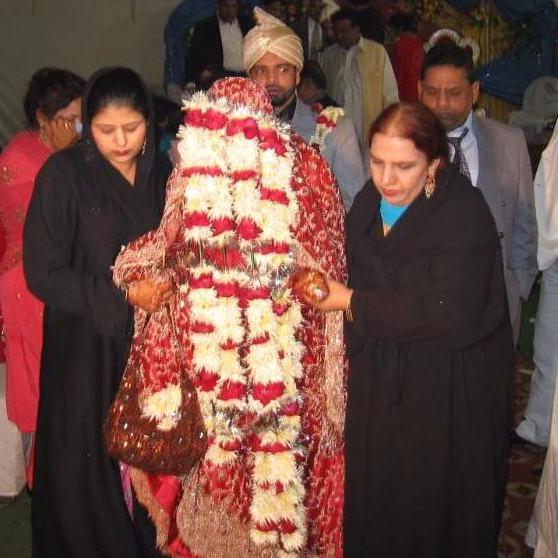Courtesy to Google Images
Gender roles have been described as society’s shared beliefs that apply to individuals on the basis of their socially identified sex. Stereotypes can be conceptualized as the descriptive aspects of gender roles, as they depict the attributes that an individual ascribes to a group of people. Agency is often cited as the defining characteristic of the male stereotype, and communality as the defining characteristic of the female stereotype Whereas men are thought to be more agentic (i.e., independent, assertive, decisive), women are thought to be more communal (i.e., unselfish, friendly, concerned with others). Values (Halstead & Reiss, 2003) as, “ the principles and fundamental convictions which act as general guides to behavior, enduring beliefs about what is worthwhile; ideals for which one strives; broad standards by which particular beliefs and actions are judged to be good, right, desirable or worthy of respect”. Taken together the concepts of gender roles, stereotypes, and values, we can synthesise the concept of gender stereotypes, especially in Muslim, Latin American, and Black African societies, as being the product of religious and cultural patterns often are transferred from one generation to another through values and beliefs which underlie attitudes, behaviors, and norms
PAKISTAN was placed at 148thout of 149 countries in gender inequality index, as per the World Economic Forum report, 2018. Gender role discrimination is quite evident in the pictorial form of textbooks assigned to primary schools in Pakistan in which women are seen as helpers to men while doing various house hold chores, field works, or supporting their men while working at home (Agha, Syed, & Mirani, 2018). The main thing is that they are not doing something out of their will and desire rather give service to the men in their family. ALSO, a wide gap in general mobility between genders where women are half as mobile as men has been observed by the researchers (Adeel & Zhang, 2017). Additionally a severe gender disparity has been observed in children enrolment rates that are not significantly related to household income which implies that overall boys are preferred for higher education than girls irrespective of the economic status of parents (Quayes & Ramsey, 2015). In the same context, women are not generally encouraged to pursue a career, and their income related needs are hardly met by their own efforts ( Shah, & Baporikar, 2013).
Pakistan is a country where we celebrate sorrow feelings (like the custom of rukhsati in marriages), pains, and sufferings of the other vulnerable people. Pakistan is a country where we enjoy taking part in others helplessness, selflessness, and dependency. We provide opportunities to feel embarrassed (by teasing them physically in supermarkets), we provide sentiments to feel shame, to feel guilty and to feel harassed. Pakistan is a country where we love to kiss someone even at the cost of her dignity, willingness and approval. We are basically pathetic minded people and we don’t react upon others emotions appropriately- a kind of schizophrenic or in other words mentally sick people!
Usually, parents show the way to their kids and tell them, say
Don’t don it, it is not appropriate to your sex
Girls should stay at home
Boys should play with boys
Girls should know how to do house chores
Boys should look strong and resilient
Girls should help their mother in the kitchen
Boys don’t need to learn knitting or sewing
Boys don’t shout
Girls should behave nicely
Boys don’t play with dolls
Girls don’t play outside
Girls don’t complain
daughters are guest in their parental home
and much more alike
It is so simple! when something is not appropriate due to gender identity – it is not appropriate actually. Our way to analyse it should be appropriate. We should tell our kids a different reason to do something or not to do something. We should not focus on gender in any way.
When we see the broad picture, societal pressures, parental attitudes, religious themes, and overall cultural settings combine to depict the sorry picture of gender discrimination in the society of Pakistan. It is not one single person’s fault, or duty to bring a change. It is each one of us if we are live, and if we can think, we are liable for thinking so. We need to be punished for thinking so- when we go for it by choice!
I request the parents of our society to deal with your kids fairly and equally. You are not allowed to discriminate among them on the basis of their sex except choosing color blue for boys and pink for girls. You can still choose various outfits to identify your daughter and son distinctively; you can still choose a haircut for girls and another for boys; however you should not go beyond it. Gender discrimination is not harmful in any way– but according to UNO guidelines of human rights it will become harmful when it will limit them from gaining personal abilities, restrict them from pursuing professional careers, limits the access of equality education and health, prevents them from making choices about their lives, results in violation of human rights, restricts them from enjoying fundamental freedom of movement with peace and security, and when these discriminatory beliefs underlie sorrow and grief in day to day family life.
Freedom, independence, powerful acts of decision making, free mobility, and strong ego could also be the ornaments of the women, as well as men. Women can exert their true will and make choices based on their own desire rather than to the sake of the family, culture, honor or any other fake idea or belief. In other words, women can decide what they want to do in their life, till how long they want to stay with their parents, when they want to get married, to whom they want to get married, to whom they want to get married a second or third time. In total, they can decide about their life freely and without having any social pressure in an ideal situation.
Traditions and customs should not be practised on someone’s freedom and right to live fairly. When you say, someone, to be quiet on having pain, to be patient and do sacrifice, you are not follower/preserver of a tradition (nice women sacrifice for their family), you are not making her a true legend; rather you are a perpetrator and exercising a devil. In other words, you are making their life miserable and torturous- that is a crime in itself.
For the women who usually feel guilty, and miserable, it is not easy to make them understand that they need to change their reaction from feeling guilty to feeling aggressive, annoyed on the apparent mis justification and mistreatment. Though it is unlikely that we change our mindset in an hour or so; however, we need to speak, think and reflect until neurons in our brains start working on such communicatory pathways and take information at the conscious level to act physically. This is the first step and it is the most crucial one in certain cultures like PAKISTAN.
Harmful gender stereotypes, rigid constructions of femininity and masculinity and stereotyped gender roles are a root cause of gender-based violence against women and put them at risk for various kinds of psychological and mental disorders like anxiety, depression, and stress. To eliminate gender-based violence against women, it would be crucial to transforming discriminatory gender norms and stereotypes into fair and equity-based traditions and norms that promote non-violent, respectful and equal gender relations between men, women.
.
References
Rhoodie, Eschel, M. (1989). Discrimination against women a global survey of the economic, educational, social, and political status of women. North Carolina: McFarland & Company, Inc.
Mirza, I., & Jenkins, R. (2004). Risk factors, prevalence, and treatment of anxiety and depressive disorders in Pakistan: Systematic review. British Medical Journal, 328(7443), 794. https://www.bmj.com/content/328/7443/794.full
Khan, M. M., & Reza, H. (2010). Gender differences in nonfatal suicidal behavior in Pakistan: Significance of sociocultural factors. Suicide and Life-Threatening Behavior, 28(1), 62–68. https://onlinelibrary.wiley.com/doi/abs/10.1111/j.1943-278X.1998.tb00626.x
Ali, N. S., Azam, I. S., Ali, B. S., Tabbusum, G., Moin, S. S. (2012). Frequency and associated factors for anxiety and depression in pregnant women: A hospital-based cross-sectional study. The Scientific World Journal, 2012. https://www.hindawi.com/journals/tswj/2012/653098/abs/
Khan K.S., Rafique G., Bawani S.A.A., Hasan F., Haroon A. (2015). Social and Societal Context of Women’s Mental Health, What Women Want, What They Get: Gap Analysis in Pakistan of Mental Health Services, Polices and Research. In: Khanlou N., Pilkington F. (eds) Women’s Mental Health. Advances in Mental Health and Addiction. Springer, Cham
Agha, N., Syed, G. K., Mirani, D.A. (2018). Women’s Studies International Forum. 66. Pp. 17-24. https://doi.org/10.1016/j.wsif.2017.11.009
Quayes, S., & Ramsey, R. D. (2015). Gender disparity in education enrolment in pakistan. Asian Economic and Financial Review, 5(3), 407-417. Retrieved from https://search.proquest.com/docview/1678797188?accountid=14116
Halstead, J Mark & Reiss, Michael J. (2003). Values in sex education. London and N.Y. : Routledge Falmer.
Shah, I. A., & Baporikar, N. (2013). Gender Discrimination: Who is Responsible? Evidence from Pakistan. Women’s Studies, 42(1), 78–95. https://doi.org/10.1080/00497878.2013.736284
Tazeen S. Ali, Gunilla Krantz, Raisa Gul, Nargis Asad, Eva Johansson & Ingrid Mogren (2011) Gender roles and their influence on life prospects for women in urban Karachi, Pak0istan: a qualitative study, Global Health Action, 4:1,DOI: 10.3402/gha.v4i0.7448
Pakistan second worst in gender equality: WEF. (2018, December 19). United News of India (UNI) [New Delhi, India]. Retrieved from http://link.galegroup.com/apps/doc/A566261610/STND?u=ustrath&sid=STND&xid=e61f3084
Eagly,A.H.(2009). The his and hers of prosocial behavior: An examination of the social psychology of gender. American Psychologist, 64(8), 644-658.
http://dx.doi.org/10.1037/0003-066X.64.8.644
Eagly, A. H., & Mladinic, A. (1989). Gender Stereotypes and Attitudes Toward Women and Men. Personality and Social Psychology Bulletin, 15(4), 543–558. https://doi.org/10.1177/0146167289154008





